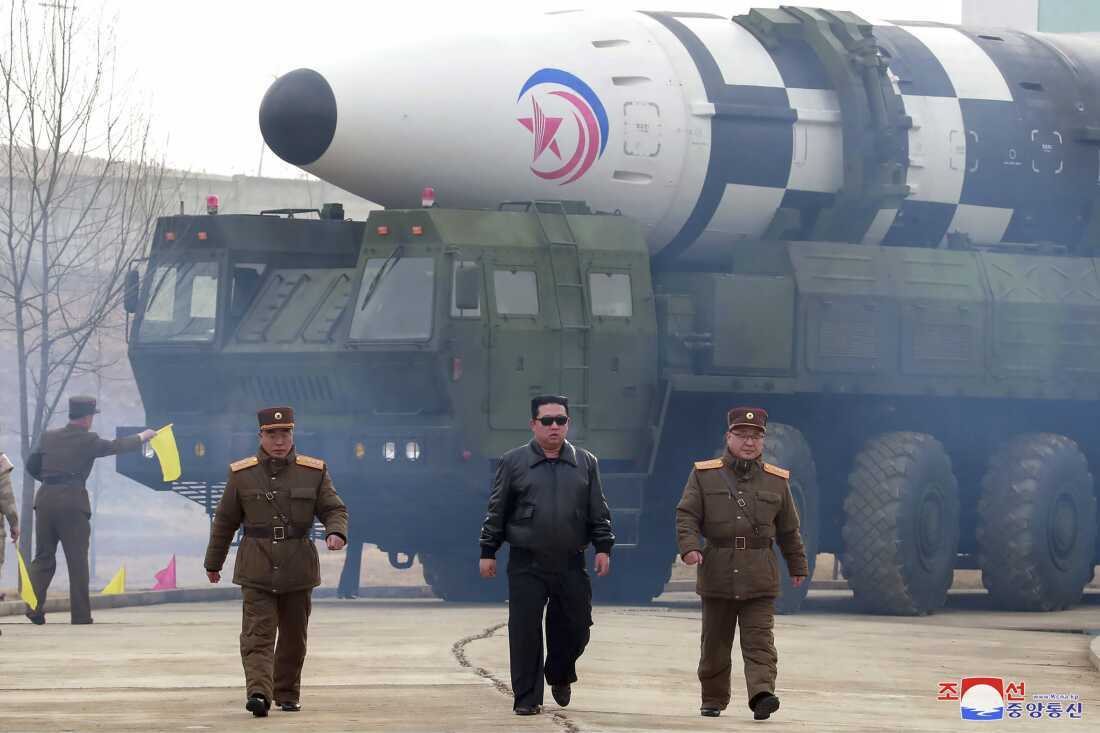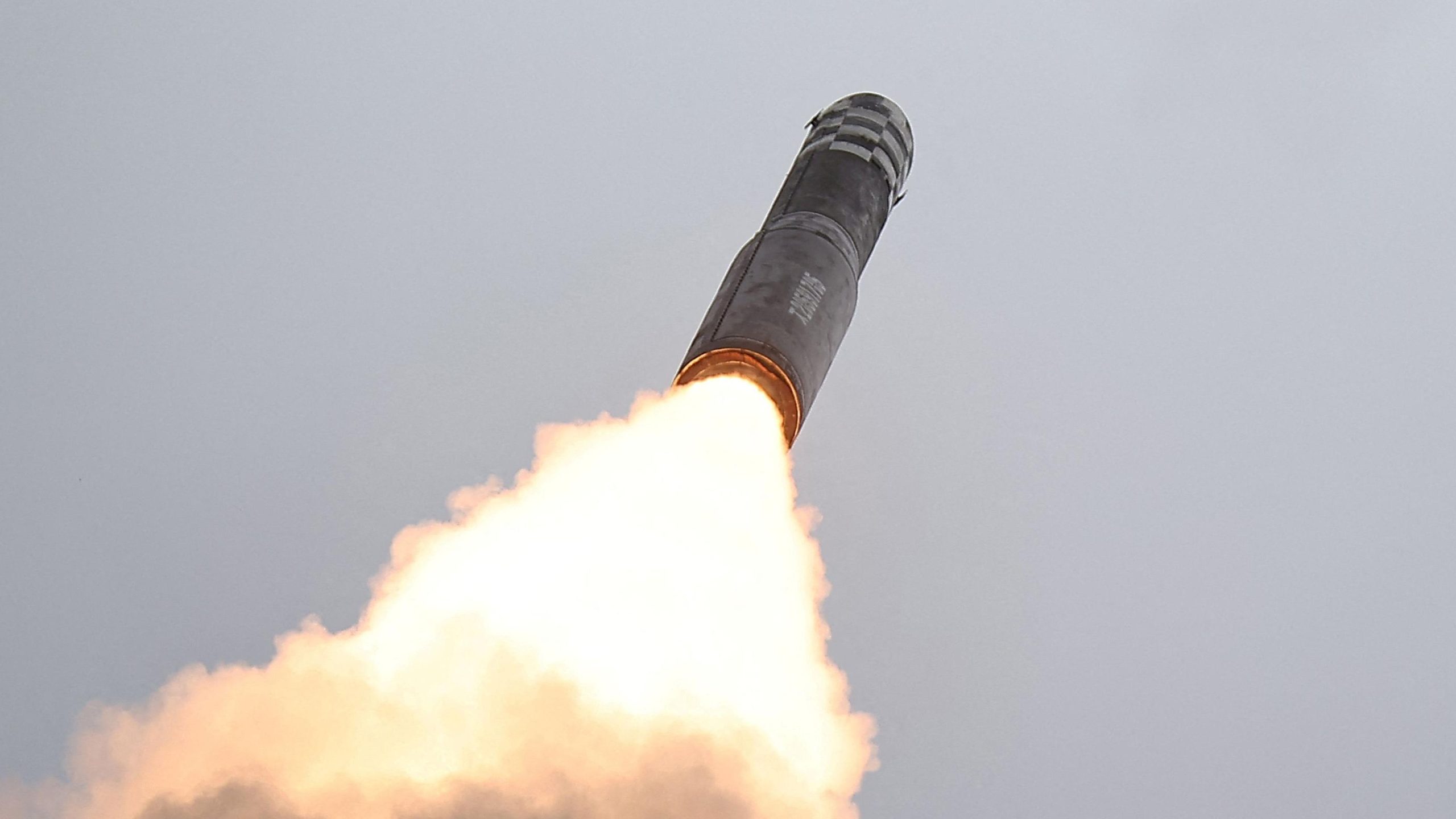North Korea conducted a series of missile launches on Tuesday, firing at least seven short-range ballistic missiles into the sea, according to neighboring countries. Japanese Defense Minister Gen Nakatani reported that these missiles traveled as far as 400 kilometers (250 miles) and reached a maximum altitude of 100 kilometers (60 miles) before landing in waters between the Korean Peninsula and Japan.
Nakatani emphasized that these actions threaten the peace and safety of Japan and the broader international community, highlighting ongoing regional tensions.
In South Korea, military officials detected the missile launches and heightened their surveillance posture in response, given the potential threat to critical facilities, including U.S. military bases stationed in South Korea.
The recent missile tests follow a previous flight test of North Korea’s latest intercontinental ballistic missile (ICBM) overseen by leader Kim Jong Un. The U.S. responded to that test by conducting a trilateral military drill with South Korea and Japan, which included the deployment of a long-range B-1B bomber, further escalating tensions in the region.

North Korea Launches Seven Missiles Amid Rising Tensions with Japan and the U.S.
Analysts suggest that North Korea is likely amplifying its military demonstrations around the time of the U.S. presidential election to draw attention from Washington. South Korean military intelligence reported that North Korea may be preparing for its seventh nuclear test, which could further complicate the already tense situation. This strategy appears aimed at leveraging its nuclear arsenal to gain concessions, such as sanctions relief, following the election of a new U.S. president.
There are indications that Kim Jong Un may prefer a win by Republican candidate Donald Trump, whom he engaged with in significant diplomatic discussions in 2018-19. In contrast, Democratic candidate Kamala Harris has publicly stated her intention not to engage with North Korea’s leadership.
Analysts note that while North Korea recently claimed to have tested the “world’s strongest” ICBM, experts contend that it still lacks essential technologies for a functioning ICBM, such as ensuring the warhead can withstand re-entry into the atmosphere.
Amid these developments, concerns are growing over North Korea’s potential involvement in Russia’s war in Ukraine, with reports suggesting that thousands of North Korean soldiers are preparing to join the conflict. This cooperation raises alarms about possible technology transfers from Russia to North Korea, which could enhance its nuclear capabilities.
At a recent U.N. Security Council meeting, North Korea defended its weapons programs as necessary for national security, while the U.S. warned that it cannot ignore the escalating nuclear threat from North Korea, insisting on a proactive response to maintain regional and global stability.











































